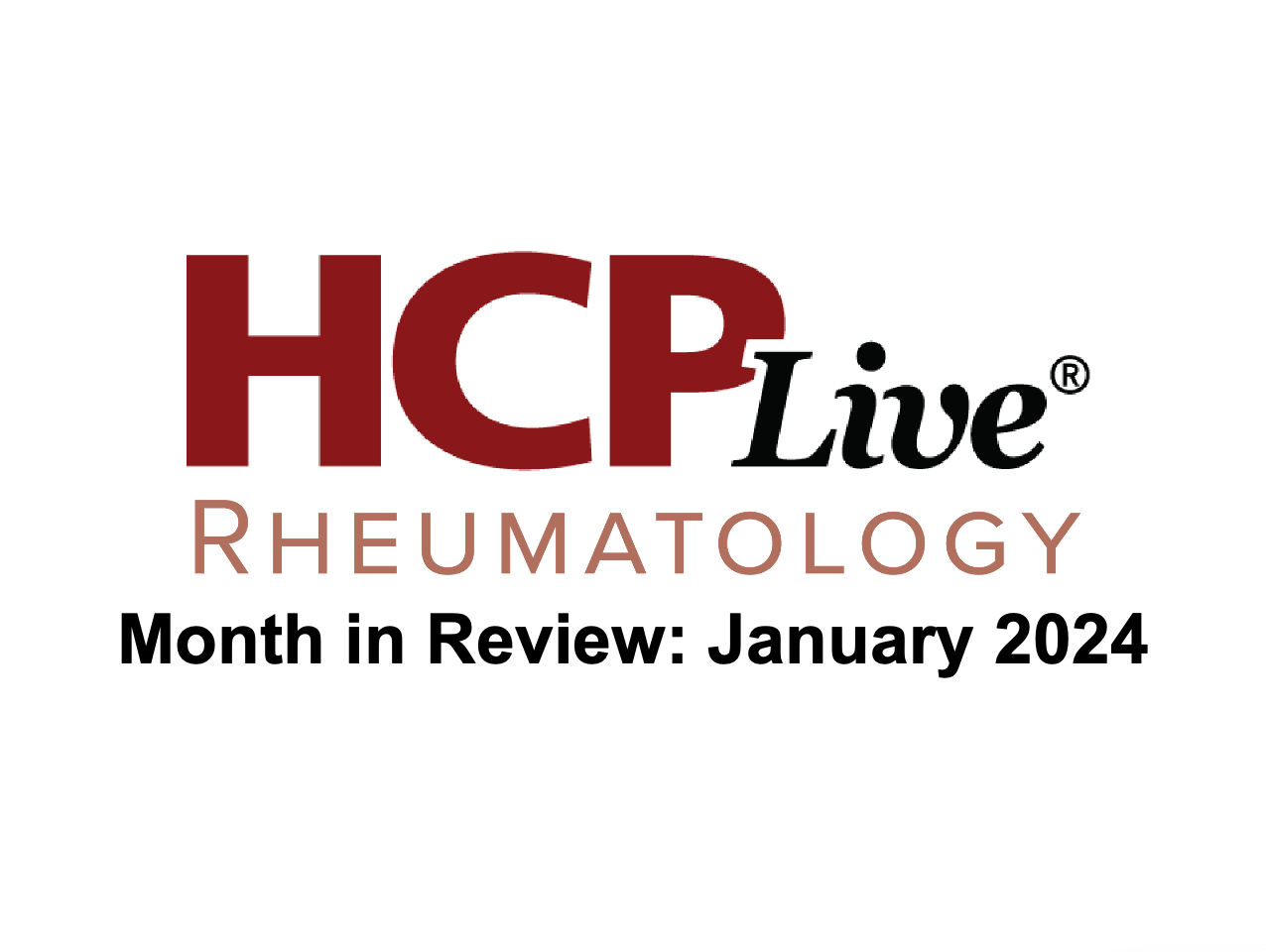News
Article
Rheumatology Month in Review: January 2024
Author(s):
The rheumatology month in review highlights the challenges of fibromyalgia management and uncovers compelling associations regarding rheumatic disease and comorbidities.

The rheumatology month review delves into the challenges of fibromyalgia, shedding light on its profound impact on emotional wellbeing and highlighting gaps in awareness and understanding. Additionally, investigations into rheumatic disorders uncover compelling associations, demonstrating a gastroesophageal reflux disease (GERD) diagnosis significantly increases the risk of concomitant rheumatoid arthritis (RA), while patients with inflammatory arthritis face elevated odds of depression and anxiety.
Insights into Fibromyalgia
This month, studies explore the challenges and aspects related to fibromyalgia, such as its impact on emotional wellbeing, gaps in awareness and understanding, and the importance of improved education and communication.
Significant Connection Observed Between Fibromyalgia, Type D Personality
Investigators recruited 50 adult patients with clinically diagnosed fibromyalgia and 50 matched healthy controls to assess the effects of type D personality on quality of life, anxiety, depression, pain, and sleep quality.
The term “type D personality” is derived from the initials of “distrustful” and “distressed.” Patients with this personality type frequently experience negative emotional responses and chronic distress, and are prone to depression, anxiety, irritability, and dysphoria.
Most patients (n = 30, 60%) with fibromyalgia had type D personality traits compared with only 12 patients (24%) in the control group (P <.001). These patients also reported significantly higher levels of anxiety and depression.
Only 1 Out of 10 of Clinicians Adhere to ACR Criteria for Fibromyalgia
An international survey was conducted to evaluate whether healthcare professionals are familiar with the American College of Rheumatology (ACR) criteria for diagnosing fibromyalgia, the causes of the condition, and whether they adhere to clinical guidelines when treating their patients. Clinicians were invited to participate via email and social media advertising.
Findings revealed the vast majority of healthcare professionals surveyed (90%) do not follow the diagnostic criteria for fibromyalgia, including treatment advice, and many were unaware of the causes of fibromyalgia.
Addressing Unmet Needs in Fibromyalgia Care, with Lora Black, PhD
In an interview with HCPLive, Lora Black, PhD, psychologist in the Department of Psychiatry & Behavioral Health at The Ohio State University Wexner Medical Center, discussed the results of an online survey of patients with fibromyalgia. Participants reported confusion regarding the cause and symptoms, as well as a desire for the people in their lives to be more understanding of their condition.
Black explained the idea for their research stemmed from hearing patients express a lack of understanding and control over their fibromyalgia, leading to difficulties in receiving necessary care. The study findings mirrored the challenges patients often discuss, such as facing skepticism about their pain experience, highlighting the need for improved education and communication.
Rheumatic Disease and Coexisting Health Conditions
Studies demonstrate compelling associations between rheumatic disorders and various health conditions. Firstly, GERD diagnosis significantly increases the risk of concomitant RA, patients with inflammatory arthritis face heightened odds of depression and anxiety, emphasizing the need for comprehensive mental health considerations in rheumatic care, and a longitudinal study reveals a significant link between gout and migraines, highlighting the systemic impact of rheumatic conditions on diverse health outcomes.
GERD Diagnosis Significantly Increases Risk of Concomitant RA
Approximately 1 out of 5 people in North America are diagnosed with GERD, a condition which is almost 4 times more prevalent when compared with Asian populations. The disease is characterized by symptoms including heartburn, nausea, inappetence, and a susceptibility to pharyngitis.
Results showed GERD influenced the occurrence of RA (odds ratio [OR] = 1.69, P <.00125). After the removal of confounding factors, the causal relationship of GERD on RA still existed (OR = 1.69, 95% confidence interval [CI] = 1.24 – 2.31, P <.0125).
Odds of Depression and Anxiety Significantly Increased in Patients with Arthritis
Patients with inflammatory arthritis demonstrated significantly increased odds of depression and anxiety health care encounters as well as the use of anxiolytics and antidepressants for each year 5 years prior and 5 years post-diagnosis.
The adjusted odds ratios (aORs) were the highest immediately before (≥1 depression visit: aOR 1.61, 95% CI 1.55 — 1.66; ≥1 anxiolytic: aOR 1.71, 95% CI 1.66 — 1.77) or immediately after (≥1 antidepressant: aOR 1.95, 95% CI 1.89 — 2.00) the arthritis diagnosis.
Gout Linked to a Significantly Higher Likelihood of Migraines
A 16-year longitudinal study was performed using the Korean National Health Insurance Service-Health Screening Cohort (KNHIS-HSC) database to evaluate the relationship between migraines and gout, particularly among different subtypes. The KNHIS is comprised of approximately 97% of the Korean population.
Subgroup analyses revealed a link between gout and migraines, which remained significant across a variety of subgroups, such as sex, income, smoking status, alcohol consumption, and residence. After adjusting for health-related variables, weight categories, and demographics, patients with gout had a 1.26-fold higher likelihood of experiencing migraines when compared with those without gout. This was particularly prevalent in the migraines without aura subtype, although the association was not significant for migraines with aura (.30 vs .29 per 1000 person-years, respectively).




